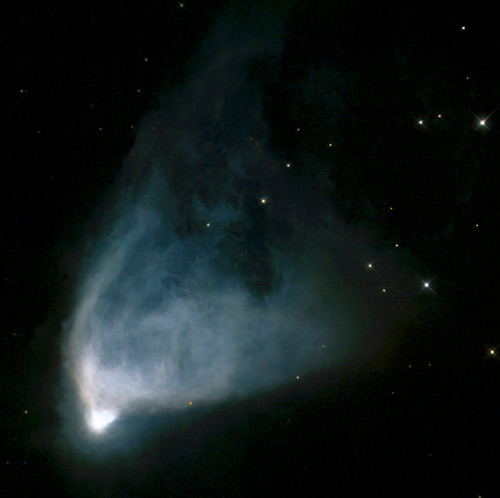[+]

Hubble’s variable nebula (credit: William Sparks, STScI; Sylvia Baggett, STScI) et al.; and the Hubble Heritage Team, AURA/ STScI/ NASA)
If you sweep a laser pointer across the Moon fast enough, you can create spots that actually move faster than light
At a meeting of the American Astronomical Society in Seattle Thursday Jan. 8, Robert Nemiroff, a physics professor at Michigan Technological University, reported that this theoretical curiosity may turn out to be practically useful out in the cosmos.
When a superluminal sweep occurs, it typically starts with a flash that may reveal previously unknown three-dimensional information about the scattering object./.../
No comments:
Post a Comment